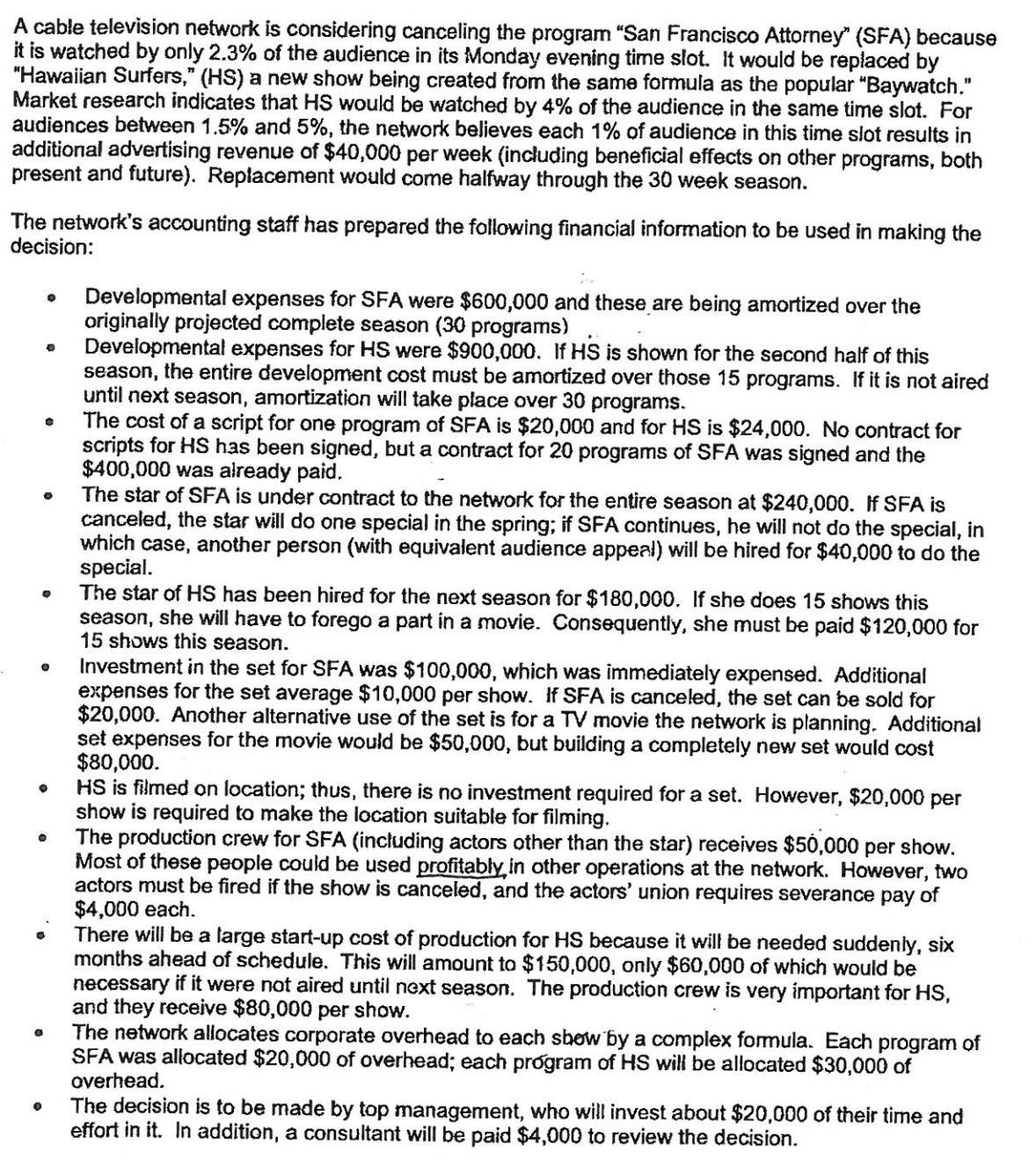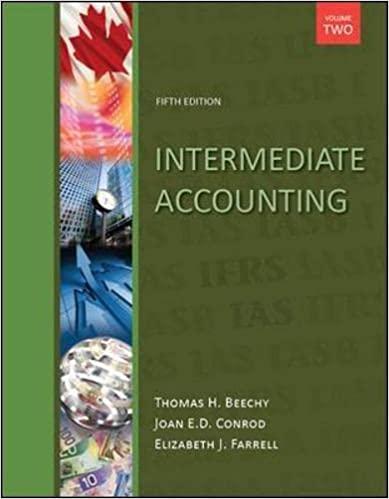Question
A cable television network is considering canceling the program San Francisco Attorney (SFA) because it is watched by only 2.3% of the audience in its
A cable television network is considering canceling the program "San Francisco Attorney (SFA) because it is watched by only 2.3% of the audience in its Monday evening time slot. It would be replaced by "Hawaiian Surfers," (HS) a new show being created from the same formula as the popular "Baywatch." Market research indicates that HS would be watched by 4% of the audience in the same time slot. For audiences between 1.5% and 5%, the network believes each 1% of audience in this time slot results in additional advertising revenue of $40,000 per week (including beneficial effects on other programs, both present and future). Replacement would come halfway through the 30 week season. The network's accounting staff has prepared the following financial information to be used in making the decision: Developmental expenses for SFA were $600,000 and these are being amortized over the originally projected complete season (30 programs). Developmental expenses for HS were $900,000. If HS is shown for the second half of this season, the entire development cost must be amortized over those 15 programs. If it is not aired until next season, amortization will take place over 30 programs. The cost of a script for one program of SFA is $20,000 and for HS is $24,000. No contract for scripts for HS has been signed, but a contract for 20 programs of SFA was signed and the $400,000 was already paid. The star of SFA is under contract to the network for the entire season at $240,000. If SFA is canceled, the star will do one special in the spring; if SFA continues, he will not do the special, in which case, another person (with equivalent audience appeal) will be hired for $40,000 to do the special. The star of HS has been hired for the next season for $180,000. If she does 15 shows this season, she will have to forego a part in a movie. Consequently, she must be paid $120,000 for 15 shows this season. Investment in the set for SFA was $100,000, which was immediately expensed. Additional expenses for the set average $10,000 per show. If SFA is canceled, the set can be sold for $20,000. Another alternative use of the set is for a TV movie the network is planning. Additional set expenses for the movie would be $50,000, but building a completely new set would cost $80,000. HS is filmed on location; thus, there is no investment required for a set. However, $20,000 per show is required to make the location suitable for filming. The production crew for SFA (including actors other than the star) receives $50,000 per show. Most of these people could be used profitably in other operations at the network. However, two actors must be fired if the show is canceled, and the actors' union requires severance pay of $4,000 each. There will be a large start-up cost of production for HS because it will be needed suddenly, six months ahead of schedule. This will amount to $150,000, only $60,000 of which would be necessary if it were not aired until next season. The production crew is very important for HS, and they receive $80,000 per show. The network allocates corporate overhead to each sbow by a complex formula. Each program of SFA was allocated $20,000 of overhead; each program of HS will be allocated $30,000 of overhead. The decision is to be made by top management, who will invest about $20,000 of their time and effort in it. In addition, a consultant will be paid $4,000 to review the decision.

Step by Step Solution
There are 3 Steps involved in it
Step: 1

Get Instant Access to Expert-Tailored Solutions
See step-by-step solutions with expert insights and AI powered tools for academic success
Step: 2

Step: 3

Ace Your Homework with AI
Get the answers you need in no time with our AI-driven, step-by-step assistance
Get Started


